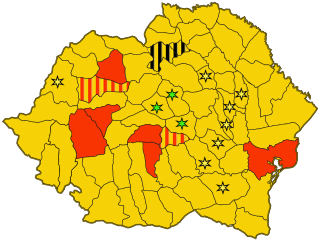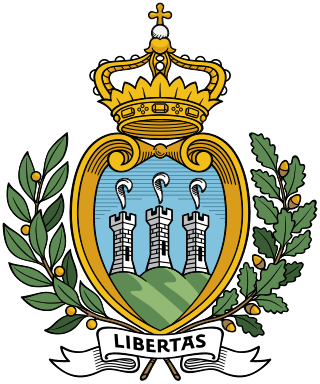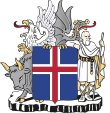
General elections were held in the Netherlands on 3 July 1918. They were the first elections held after a series of reforms that introduced universal male suffrage and pure proportional representation, replacing the previous two-round system in single member constituencies. This change was known as the Pacification of 1917, which also included the introduction of state financing of religious schools, and led to the start of consociational democracy.
Early parliamentary elections were held in Iceland on 25 and 26 October 1959. Following the electoral reforms made after the June elections, the Independence Party won 16 of the 40 seats in the Lower House of the Althing.
Parliamentary elections were held in Iceland on 25 April 1987. The Independence Party remained the largest party in the Lower House of the Althing, winning 12 of the 42 seats.

Elections for the Constituent Assembly were held in Denmark on 5 October 1848. Of the 158 seats in the Assembly, 114 were elected and 44 appointed by the King. An additional 31 candidates were to come from the Duchy of Schleswig but were not elected due to the First Schleswig War.
Parliamentary elections were held in Hungary between 8 and 15 December 1926. The result was a victory for the Unity Party, which won 161 of the 245 seats in Parliament. István Bethlen remained Prime Minister.
Parliamentary elections were held in Hungary between 28 and 30 June 1931. The result was a victory for the Unity Party, which won 149 of the 245 seats in Parliament. István Bethlen remained Prime Minister, but resigned on 24 August due to the effects of the Great Depression and was replaced by Gyula Károlyi.
Parliamentary elections were held in Iceland on 21 October 1916. Voters elected all 26 seats in the Lower House of the Althing and eight of the fourteen seats in Upper House, the other six having been elected in August. The Home Rule Party emerged as the largest party in the Lower House of the Althing, winning eight of the 26 seats.
Parliamentary elections were held in Iceland on 5 August 1916, the first elections held after women's suffrage was introduced. Following reforms to the Althing the previous year, the six seats in the Upper House appointed by the monarch were abolished, and replaced with six elected seats. The seats were elected by proportional representation at the national level, using the D'Hondt method. The remaining eight seats were elected along with the Lower House in October.
Elections to the Upper House of the Althing were held in Iceland on 8 July 1922. Following reforms in 1915, the six seats in the Upper House appointed by the monarch were abolished, and replaced with six elected seats. The seats were elected by proportional representation at the national level, using the D'Hondt method. The remaining eight seats were elected along with the Lower House.
Elections to the Upper House of the Althing were held in Iceland on 15 June 1930. Following reforms in 1915, the six seats in the Upper House appointed by the monarch were abolished, and replaced with six elected seats. The seats were elected by proportional representation at the national level, using the D'Hondt method. The remaining eight seats were elected along with the Lower House. This was the last election solely for the Upper House, as from 1934 onwards all Upper House members were elected together with the Lower House.
Parliamentary elections were held in Iceland on 15 November 1919. Voters elected all 26 seats in the Lower House of the Althing and eight of the fourteen seats in Upper House. The Home Rule Party remained the largest party in the Lower House, winning 10 of the 26 seats.
Parliamentary elections were held in Iceland on 27 October 1923. Voters elected all 28 seats in the Lower House of the Althing and eight of the fourteen seats in Upper House. The Citizens' Party, a loose collection of conservatives, emerged as the largest party in the Lower House, winning 16 of the 28 seats.
Parliamentary elections were held in Iceland on 9 July 1927. Voters elected all 28 seats in the Lower House of the Althing and eight of the fourteen seats in Upper House. The Progressive Party emerged as the largest party in the Lower House, winning 13 of the 28 seats.
Parliamentary elections were held in Iceland on 12 June 1931. Voters elected all 28 seats in the Lower House of the Althing and eight of the fourteen seats in Upper House. The Progressive Party emerged as the largest party in the Lower House.
Parliamentary elections were held in Iceland on 16 July 1933. Voters elected all 28 seats in the Lower House of the Althing and eight of the fourteen seats in Upper House. The Independence Party emerged as the largest party in the Lower House, winning 13 of the 28 seats.
Parliamentary elections were held in Iceland on 24 June 1934. They were the first held after reforms to the electoral system that increased the number of seats in the Lower House from 28 to 33 and ensured that all members of the Althing were elected at the same election. The Independence Party emerged as the largest party in the Lower House, winning 14 of the 33 seats.

General elections were held in Liechtenstein on 5 April 1926. Early elections were called following a government crisis where the Christian-Social People's Party refused to elect Ludwig Marxer to government. The result was a victory for the ruling Christian-Social People's Party, which won 9 of the 15 seats in the Landtag.

General elections were held in Portugal on 28 April 1918, following a coup by Sidónio Pais in December 1917. The elections were boycotted by the Democratic Party, the Evolutionist Party and the Republican Union, who had won over 90% of the seats in the 1915 elections.

General elections were held in Romania in May and June 1926. The Chamber of Deputies was elected on 25 May, whilst the Senate was elected in two stages in May and 10 June. The result was a victory for the governing People's Party, which, together with the allied Romanian National Party, Magyar Party and German Party, won 292 of the 387 seats in the Chamber of Deputies and 107 of the 115 seats in the Senate elected through universal male vote. With some exceptions, the Peasants' Party and the main branch of the National Party ran on common lists under the name of National Peasant Bloc.

General elections were held in San Marino on 12 December 1926 to elect the eighth term of the Grand and General Council. It was a sham election, all opposition being prevented to participate by internal and Italian threats. After it had taken over the country in April 1923, the Sammarinese Fascist Party was the only party to contest the elections, winning all 60 seats, while the official report spoke of a sole dissident ballot. A new electoral law guaranteed safe undisputed seats to the two incumbent Captains Regents.








